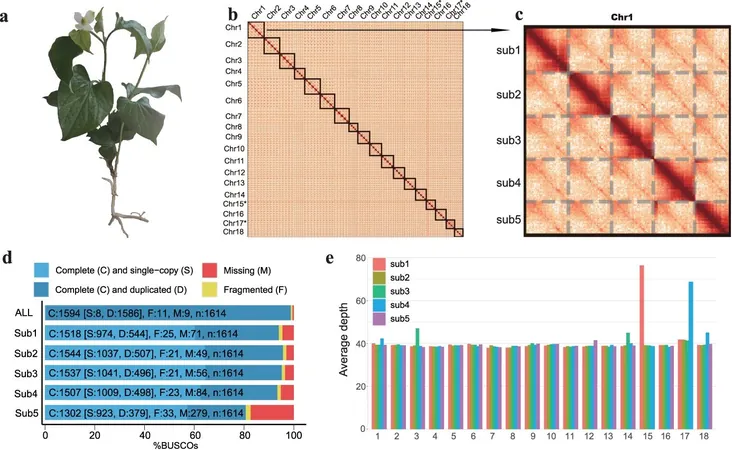
Breakthrough Study Uncovers Dietary Solutions to Protect Neurons and Combat MS Symptoms!
2024-12-23
Author: Charlotte
Groundbreaking Study Overview
A groundbreaking study led by Patrizia Casaccia, the founding director of the Advanced Science Research Centre at the CUNY Graduate Center, has revealed crucial mechanisms linking a palm oil-rich diet to neurodegeneration in multiple sclerosis (MS). This research highlights the harmful impact of specific enzymes, known as ceramide synthase 5 (CerS5) and ceramide synthase 6 (CerS6), on neuronal health, providing hope for better dietary strategies in managing this debilitating disease.
Understanding Multiple Sclerosis
Multiple sclerosis is an inflammatory autoimmune condition characterized by significant damage to the myelin sheath, which insulates and protects nerve fibers. Traditional treatments tend to focus on modulating immune responses without addressing the underlying causes of neurodegeneration, which remain largely enigmatic. Previous studies have already hinted at the adverse effects of high-fat diets on MS symptoms, but Casaccia's team delved deeper into how palm oil influences neuronal integrity.
The Research Methodology
Utilizing the experimental autoimmune encephalomyelitis (EAE) model, a profound simulation of MS in mice, the researchers demonstrated that diets high in palm oil markedly exacerbated the disease's progression.
Key Findings and Implications
Principal investigator Casaccia explained, “In neuronal cells, palm oil is metabolized into a toxic compound called C16 ceramide, produced by the enzymes CerS5 and CerS6. This ceramide inflicts significant mitochondrial damage, depriving neurons of essential energy, compounding inflammation in the brain. Our goal was to explore if inactivating these enzymes could provide neuroprotection.”
Remarkably, the researchers discovered that genetically altering mice to delete the enzymes CerS5 and CerS6 effectively thwarted neurodegeneration, even when subjected to high levels of palmitic acid in their diet. Co-first author Damien Marechal elaborated, “This revelation sheds light on a distinct metabolic pathway through which dietary fats can exacerbate MS symptoms.”
Impact on MS Management
These findings are pivotal for both individuals living with MS and healthcare professionals, emphasizing the importance of dietary modifications in managing the disease. They reinforce the idea that lifestyle choices, particularly concerning nutrition, can significantly influence the disease's trajectory.
Furthermore, the research opens up avenues for developing specific treatments aimed at mitigating the effects of CerS5 and CerS6 on neurons. Casaccia expressed hope that this research would empower patients, enabling them to make informed dietary choices that could positively affect their condition.
Looking Ahead
As science continues to unravel the connections between diet and neurological health, this study stands as a testament to the power of interdisciplinary research in combatting chronic illnesses. Inflammatory pathways related to diet may not only provide insights into managing MS but could also unveil broader implications for neurological disorders linked to diet worldwide. Stay tuned as we uncover more about the growing body of evidence advocating for lifestyle changes in the fight against neurodegenerative diseases!









 Brasil (PT)
Brasil (PT)
 Canada (EN)
Canada (EN)
 Chile (ES)
Chile (ES)
 España (ES)
España (ES)
 France (FR)
France (FR)
 Hong Kong (EN)
Hong Kong (EN)
 Italia (IT)
Italia (IT)
 日本 (JA)
日本 (JA)
 Magyarország (HU)
Magyarország (HU)
 Norge (NO)
Norge (NO)
 Polska (PL)
Polska (PL)
 Schweiz (DE)
Schweiz (DE)
 Singapore (EN)
Singapore (EN)
 Sverige (SV)
Sverige (SV)
 Suomi (FI)
Suomi (FI)
 Türkiye (TR)
Türkiye (TR)